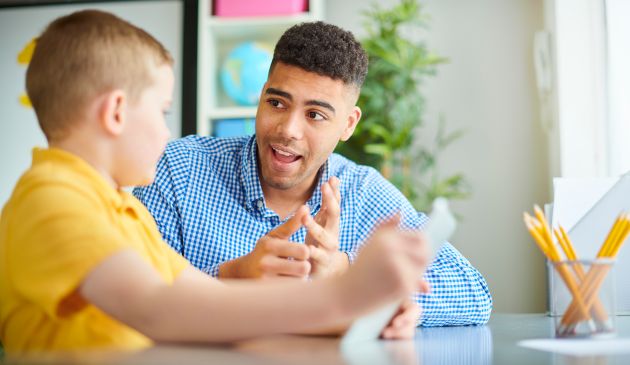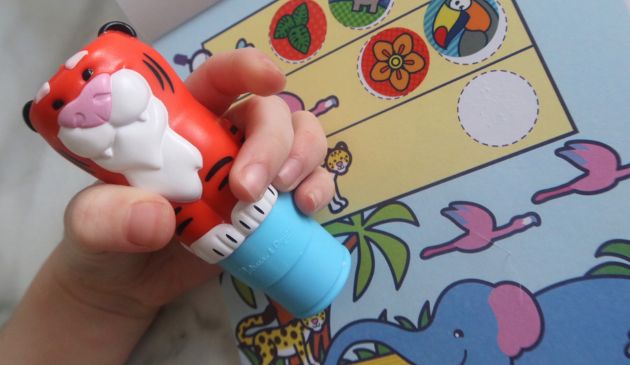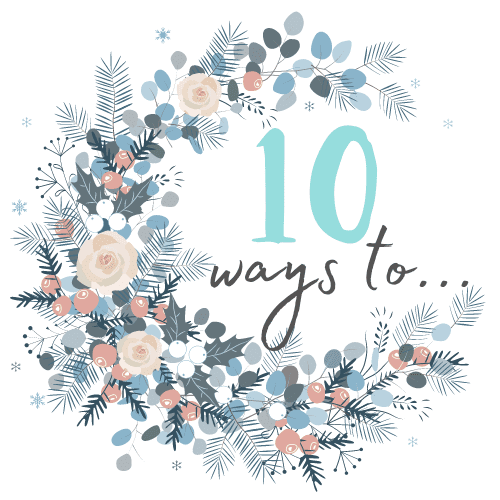
BookTrust Time to Read – Time to Talk

#AD – This is a collaborative post with BookTrust
Would you know how to talk to your child about their mental health? As a Mum to two daughters, one of the things I worry about most as the girls grow up is them feeling upset, worried or scared. I hate the thought of them going to bed at night feeling sad or anxious, and always want to make sure they know we are always there for them, no matter what, to listen and to support without judgement.
It appears I am not alone with my concerns. Recent research found that parents of children aged 4-11 worry about their child’s mental health at least once a week. In the modern world we live in, as well as the more obvious sources of worry or fear, such as losing someone they care about or challenges around friendships, there are so many other factors including social media and body image that can affect our childrens’ mental health. I hope that the girls always feel they can come and talk to me and their Dad and that we can help support them where we can.

BookTrust – Time to Read
Worryingly, the new research from BookTrust, the UK’s largest children’s reading charity, found that only just over half of children (51 per cent) aged between 8 – 11 speak with their parents when they are feeling stressed, sad or worried, with 44% percent simply trying to forget about the problem, not say anything and attempting to deal with it themselves.
The 2019 BookTrust Time To Read campaign aims to change that, and is encouraging all parents and carers to make time to read, and time to talk with their little ones, even once they’ve started primary school or can read on their own.
Their research found that for children 8-11, the most common reasons for feeling worried, sad or angry were;
- Friendship problems (46%)
- School Work (43%)
- Loneliness (25%)
The research also found that the signs a child is struggling with their mental health have included experiencing sleeping problems, crying more than usual and/or having angry outbursts at home – all of which we have experienced with my eldest since she has returned to school at the start of Year 2.
I think at times as parents we are all guilty (myself most definitely included!) of expecting children to be able to rationalise the world like an adult. We can become frustrated by tantrums, emotional outbursts or when they refuse to stay in their beds, but the reality is that the world is a complex place, and it takes time for children to understand how to process the thoughts and experiences they have during the day. These actions can in themselves be a sign that something is on their mind, and this is where the conversations can really help.
Reading to help start a conversation
The BookTrust research has highlighted the huge benefits of reading for children’s mental health and comes as the charity plan to give out over 700,000 free copies of Rob Hodgson’s laugh-out-loud picture book ‘The Cave’ to every school starter in England as part of their annual Time to Read campaign.
Their research found that currently, the way most children aged 8-11 chose to relax is more likely to be screen-based activities such as TV, tablet or Video games and that reading on their own or with a parent or carer were far less popular. Nearly a third (31%) of children aged 8-11 said their favourite thing about being read to is spending time with their parent/carer, but 2 in 5 (39%) children aged 8-11 said they find it difficult to talk about their feelings or emotions.

Mental health benefits of reading with your child
Interestingly, BookTrust found that 70% of parents have stopped reading to their child by the time they started Key Stage 2 (7 years of age), presumably because the child has gained more confidence reading alone.
Reading together beyond the start of junior school can have lots of mental health benefits including:
- Security and Routine – Creating a good routine at home can help make children feel more confident and safe. We all know as a baby that routines are important, but even once they start school, consistent behaviours including some calm time reading with a parent before bed can help them mentally switch off and relax before they go to sleep. The same actually applies to adults, but very few of us actually do it (guilty as charged!)
- How was your day? – Reading before bed is a great way to encourage your child to talk about their day – we all know how hard it can be to get an answer to the question “How was school today?” but reading books set in a similiar environment or targeted at this age group can encourage information to flow more freely about their experiences at school.
- Challenging Topics – Challenging themes from the books such as loss, bullying, fears and friendship can be discussed in a non confrontational way, allowing the child to discuss the character in the book and talk about how they may be feeling, which they may be more comfortable doing than talking about themselves. As a parent, chatting through the emotions, thoughts and feelings the character may be experiencing, can be hugely beneficial. The reflection afterwards will allow your child to apply this to their own situation without feeling shy or embarrassed.
- Freedom to ask questions – Reading with your child can stimulate important conversations – encouraging them to ask questions, explore their understanding and make better sense of the world around them.
- Resilience – The more this dialogue takes place, the more resilient your child can become, and the more likely they will be to approach you if they have a worry or concern in the future.
- Empathy – learning more about life experiences, thoughts and emotions can help your child develop empathy, understanding and compassion, which is likely to positively impact on their relationship with others.
- Creative Inspiration – As a big lover of craft, reading together with your child can also be used to inspire fun creative activities, making things that reflect the theme of the book whilst giving more one on one time to discuss what they may have learned.

Reading Together – My personal experience
For me personally, reading has been a real support to my mental health growing up. I remember from quite a young age being a fairly anxious child. At night after a busy day of learning at school, I struggled to sleep. I was scared of the dark and worried about what might happen during the night. I struggled to switch off, with all kinds of thoughts racing through my mind, and would often ask my Mum what I should dream about in a hope she could guide my thoughts in a positive direction.
Recognising that I was struggling a little with fear and worry, My Mum bought me The Owl Who Was Afraid of the Dark by Jill Tomlinson and we would read it together before bed. In case you’re not familiar with the book, The Owl Who Was Afraid of the Dark is the tale of a little owl called Plop, who whilst is a pretty perfect owl in every other way, has one small problem – he’s scared of the dark. His Mum tells him that the only reason that he doesn’t like the dark is because he doesn’t know enough about it, encouraging him to face his fears and go and learn more about the world around him.
I can still remember those comforting moments, just me and my Mum; snuggling up against her dressing gown, with the familiar scent of her perfume helping me feel safe and secure. She would play with my hair as I read the words aloud and we would talk about the little owl in the book and how he was slowly becoming more and more brave. I can honestly say I must have read it over 100 times since.
Even as a teenager, this book would always be in the top drawer of my bed side table, and whenever I was worried or anxious this book would work it’s magic every time, helping calm me down, distract my mind and rationalise my thoughts. For me, it’s a book that every child should read.

Time to read – time to talk
Over recent months, I have become more and more conscious about reading with Erin, not only to ensure she is on track for the curriculum, but to ensure we have that quality one on one time together before bed. With a demanding younger sister, hectic busy lives, school runs and work commutes, we perhaps haven’t been investing as much time as we should to do this and it’s something I am desperate to change.
On the days where I am not at work, we used to sit down after school and read before tea, including Neve in the story time too. This worked well, but after creating a small reading nook in Erin’s bedroom, one of us now goes up to bed around 30 minutes earlier than normal, whilst the other parent stays downstairs with her sister.
We get ready for bed, get calm and cosy and we let her pick out a book. At times, she reads and we listen, at others we read and she listens. The important part is that she gets one on one time with each of us, talking and laughing together, encouraging conversations and most importantly, we gain some insight into what is going on in her thoughts.
Since the start of the school term this September, Erin’s sleep has been fairly horrific, getting out of bed every 5 minutes, asking to come in our bed and finding any excuse under the sun not to stay in her bedroom. It would be all too easy to tell her off and get cross, but I honestly think that this reading time before bed has given Erin the confidence she needed to talk about what was worrying her.
We read The Owl Who Was Afraid of the Dark together, and she finally admitted that she too was a little bit scared of the dark. Despite having a night light in her bedroom she said that sometimes her “eyes made funny shapes” and she didn’t like being alone. We talked about Plop and how he was scared of the dark too, but that sometimes you needed to look at things from a different perspective. I told Erin why I personally loved the dark, why I loved being warm and cosy in bed whilst the rain was tapping on the window outside. We talked about how she can always turn the nightlight up a little if she wants to see her room more clearly, and that Mummy and Daddy are only around the corner.
Talking about a character she could relate to and providing the opportunity for some reassurance has definitely helped Erin process some of the concerns she had. Whilst I don’t have all the answers (and most likely never will do!), I definitely think books are a great way to talk about things that are otherwise difficult to approach.
This BookTrust research, backed by Psychologist Emma Kenny and Place2Be, the leading national children’s mental health charity, shows just how important it is for parents and carers to start conversations with children about the challenges they might be facing. You can learn more about BookTrust’s Time to Read Campaign and their links with Place2Be on the BookTrust website.
Do you read with your child before bed. What books would you recommend to help tackle difficult subjects with your children?
Want to kick start the conversations?
Thanks to the team at BookTrust we have a goodybag to giveaway as pictured, with a fab selection of books to encourage conversations with your children. To enter please use the Gleam app link below. UK entrants only, our standard giveaway terms and conditions apply. Giveaway opens 17th September 2019 and closes Sunday 6th October 2019 at 11.59pm.

*This post is in collaboration with BookTrust however all thoughts and opinions are my own*



















































with the eldest its narnia! when lucy is jelous it helped her be more confident when she realised he isnt the onlyy one to feel insecure at times
My oldest started to get very naughty when her brother was born and so i got a book from the local library on behavior of children and it taught me how to deal with her jealously, it was very informative and helped me and her no end
I got my 8 year old a facts of life book!
We read Goodbye Mog when our family cat died.
I can’t recall a particular book helping a delicate/sensitive situation as yet, but certainly would track down a book with a suitable story line to help. We are all book lovers and introducing all manner of stories encourage reading skills, expand vocabulary and often lead to discussions afterwards. The joy of reading is a wonderful thing that lasts throughout life, either just for enjoyment or gaining knowledge, and sometimes both!
I really enjoyed reading this post 🙂 it reminded me of my childhood and it makes me appreciate just how special my night time reading with my daughter is. I remember plop, I didn’t until I read this post so that’s made me smile, but my fave was very similar – can’t you sleep little bear. I’m going to find it and read it to my little girl tomorrow now 🙂 tonight we read 5 minutes peace, one I really relate to myself :p
I have used starting school books, they are very good
I’ve had some books about tackling sex with my son, but I gave them to a friend and can’t remember the titles, but they were great xx
What’s worrying you? By Molly Potter
We used books for toliet training
I’ll Always Love You helped with pet loss. It’s been around a while but is excellent.
theres a book at my daughters preschool about kind hands and its taught her to express herself and not hit out
Aesopps fables
oooh exciting
Goodbye Mousie was so useful and comforting when my son’s beloved guinea pig died.
Mummy Laid an Egg is a fab book
Room on the broom by Julia donaldson. It was a great way to explain to my eldest daughter that Mummy has plenty of love and room on her broom for her new baby sister and that she might actually enjoy the company.